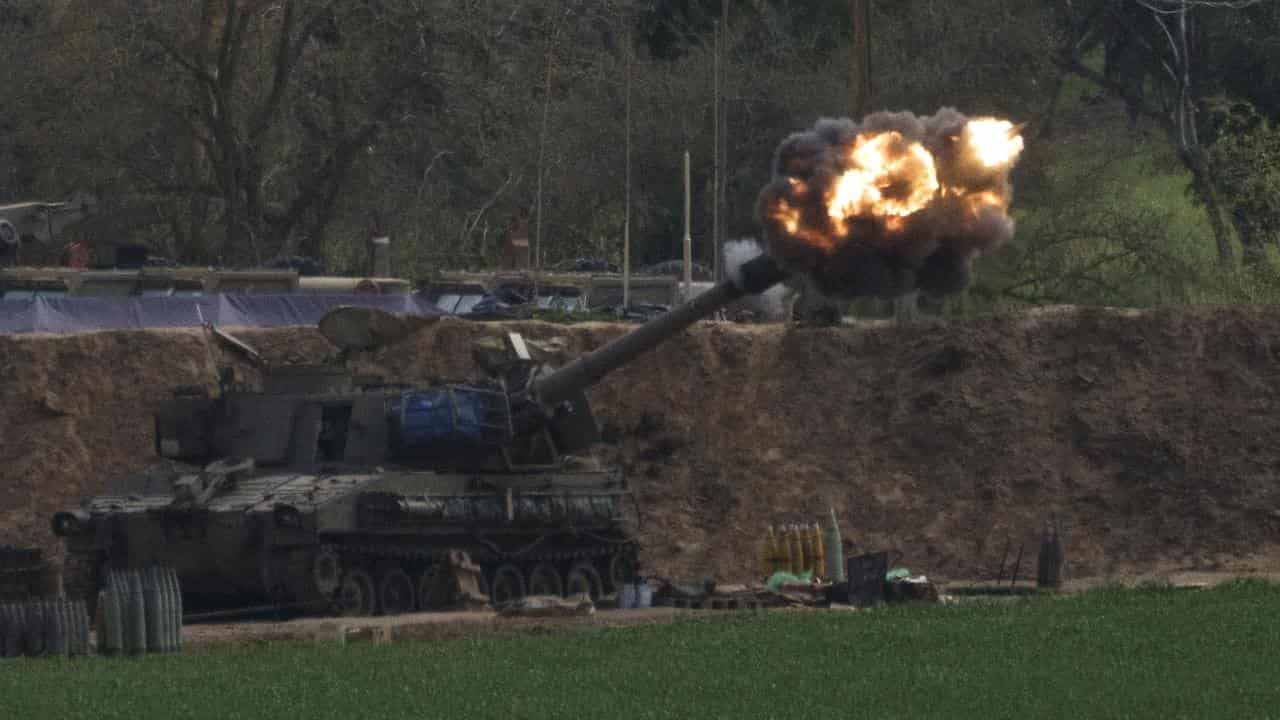
Hamas says its top political leader has left Egypt after holding talks with Egyptian officials about a possible ceasefire in the Gaza Strip, and an exchange of Israeli hostages for Palestinians imprisoned in Israel.
The statement released early Friday by Hamas did not say whether Haniyeh’s talks with Egyptian intelligence chief Abbas Kamel about ways of ending the war, a hostage deal and the flow of aid to Gaza were successful or led to a breakthrough.
The talks in Cairo came ahead of a high-level meeting expected over the weekend in Paris, where international mediators will present a new proposal.
During Hamas' October 7 attack on southern Israel, militants killed about 1,200 people and took some 250 hostages.
Roughly half of the Israeli hostages were released during a week long ceasefire in November.
About 100 hostages remain in captivity, in addition to the bodies of 30 others who were killed on October 7 or died in captivity.
Israel’s subsequent offensive in Gaza has killed more than 29,000 Palestinians and driven some 80 per cent of the territory’s 2.3 million people from their homes.
Most heeded Israeli orders to flee south, and around 1.5 million are packed into Rafah near the border with Egypt.
European diplomats have ramped up calls for a ceasefire as alarm grows over the worsening humanitarian crisis in the Gaza Strip.
Israel will take part in negotiations with the United States, Qatar and Egypt in Paris over the weekend on a potential deal for a ceasefire and release of hostages in Gaza, according to a source briefed on the matter and Israeli media.
Israel's Channel 12 television on Thursday reported the war cabinet had approved sending negotiators led by the head of Mossad intelligence service David Barnea, to Paris on Friday for the talks.
The last talks on a ceasefire failed two weeks ago, when Israeli Prime Minister Benjamin Netanyahu rejected as "delusional" a Hamas proposal for a four-and-a-half month truce that would end with an Israeli withdrawal.
Israel seeks a phased deal, including a temporary pause in fighting in exchange for the release of some of the roughly 100 hostages still held by militants since the brutal Oct. 7 Hamas attack on southern Israel.
Israel has vowed to keep fighting until Hamas is crushed.
Hamas initially demanded to end the war, now in its fifth month, before hostages can be released.
Hamas has said that it would release the Israeli hostages in return for the all Palestinian prisoners in Israeli jails. Israel rejected that demand, and mediators have been working on a new deal.
Earlier on Thursday, Israel's Defence Minister Yoav Gallant said the country's hostage negotiators were being given expanded authority.
The urgency of diplomatic efforts appeared to be increasing ahead of the month-long Islamic holiday of Ramadan, which begins on March 10.
US Middle East envoy Brett McGurk held "constructive" meetings in Egypt and Israel including with Netanyahu on Thursday, White House national security spokesperson John Kirby said at a briefing.
In Rafah, where over half of the enclave's 2.3 million people are huddled, mostly in tents, mourners wept on Thursday over at least seven corpses in body bags, laid on cobbles outside a morgue.
Gaza health authorities said at least 120 people were confirmed killed and 130 wounded in the last 24 hours of Israeli assaults, but many more victims were still under rubble.
Rafah's al-Farouk mosque was flattened into slabs of concrete, and the facades of adjacent buildings were blasted away.
Israel has threatened to launch a full-blown attack on Rafah, the last city at Gaza's southern edge, despite international pleas - including from its main ally Washington - for restraint.
Residents who have fled to Rafah from elsewhere say there is nowhere left to go. Meanwhile, an already meagre aid flow has almost completely dried up.




